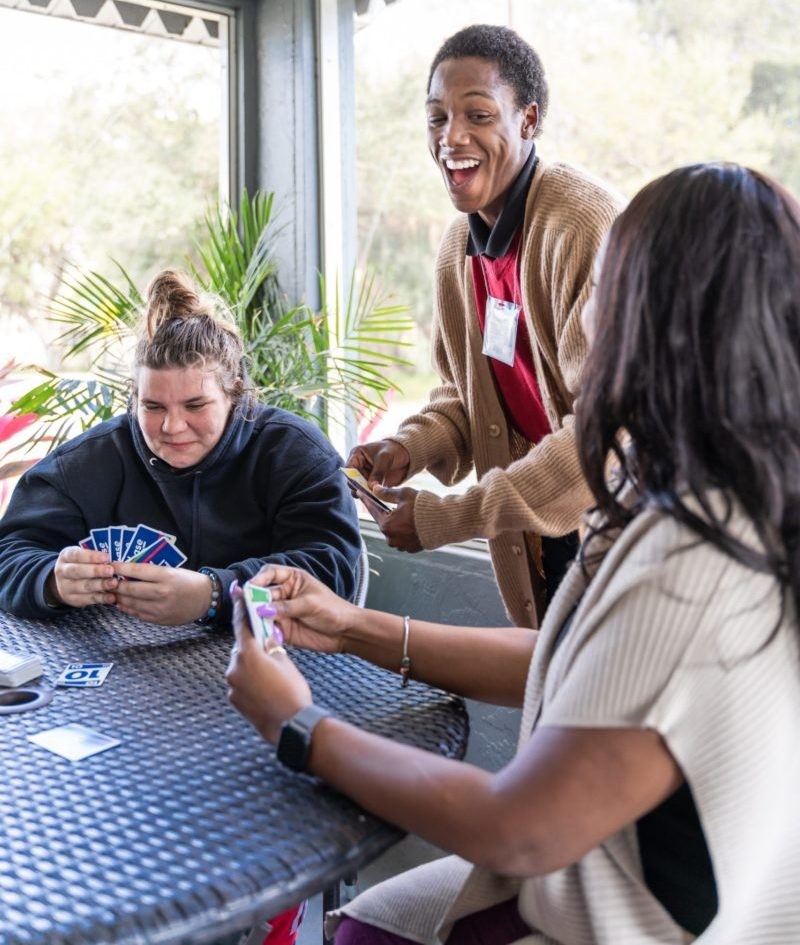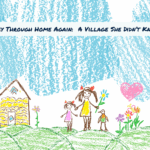Six months into this global pandemic, it seems like everyone, everywhere is experiencing high amounts of chronic stress. But what can we do about it?
As a client-centered supportive housing organization, opportunities to work remotely are almost non-existent. Our staff members are essential to the 400+ beds that are occupied every night. Our food pantry employees and volunteers are serving hundreds of households in the community through a weekly drive-thru distribution. Our Young Adult Services Manager is seeing about 10 young adults each week drop-in for services while offering intensive case management to another 10 in the community. The Freedom and VETS program staff are finding creative ways to stay connected and engaged with 120 men and women amidst many social triggers for relapse. The number of families seeking emergency shelter, SOS funding, and case management help are increasing by the day, and so our operations must go on.

More barriers are arising when case managers try to connect clients to services or encourage them to be independent, as is our normal process. For example, one mother was trying to complete the goals set with her case manager: get her children in daycare, make an appointment for her mental health, and connect with a government agency for next steps on her case. But, as many face a reduced workforce, it has been difficult to get someone to respond.
Another family found housing, but because of COVID restrictions they couldn’t see the apartment in person before signing a lease. When she moved in, it was nothing like what she saw in the photos.
AA meetings are being canceled or held virtually, and frankly, most recovery clients are finding it difficult to connect that way. The typical social triggers for substance abuse are exacerbated in these conditions.
Uncertainty is still heavy in the air. As we enter the back-to-school season, thousands of local parents are faced with difficult decisions concerning their children’s education and their availability to maintain full-time work. There doesn’t seem to be a win-win option anywhere in sight…
… but we specialize in hope.
In the face of uncertainty, we’re working out creative solutions with the help of a collaborative team. The spirit of hope is being kept alive by our heroic staff.
For example, our Young Adult Services Manager is doing different things with the youth that can’t find a job right now, such as teaching them how to do their laundry and ride a bike. The Freedom clients have incorporated journaling as one of their life-skills classes, and the results are incredible. Families are finding an essential community of parents with each other.

The human spirit is strong, and it is reinforced in subtle moments of camaraderie. Like last week, when Freedom clients together volunteered to build a playground for the children on our campuses, or those who pressure washed the floors in our food pantry, or when a small group of clients laughed together over a board game. It’s these little things that are making a big difference right now.
We tend to focus on big wins, but celebrating the everyday small wins is essential to our contentment and gratitude. This week, a young man beamed when he told me he was released from community control probation and he obtained his driver’s license within two days of each other. Now, he’s still on “regular” probation for another year. And this is something he could feel defeated about, but he’s not! He’s grateful for the direction his life is headed today.
I have come to the conclusion that contentment and gratitude are foundational for my own mental health and my ability to maintain hope. Even amid chaos and struggle for progress I must intentionally be grateful for this moment, this breath, and the love I have in my life. These sustain me, calm my anxiety, and ground me. They encourage me to step forward when I want to shrink back in fear or give up. We have yet a long way to go in our society, but we won’t get far if we feel defeated or burned out. I encourage you to slow down to celebrate the small wins in your life and in the lives of your loved ones. It’s the small wins of yesterday and today that solidify hope and pave the way for the big wins of tomorrow.
I sincerely thank you for your continued support of the Harvest House mission. Today, I choose to be grateful for you.

“It is easiest to have hope when things are going well in your life. It’s when life gets difficult that we need to utilize hope the most.” – An essay on hope
LEARN MORE

Director of Addiction and Veteran Services Jim Rouches talks about the purpose of stress and anxiety and how to manage them in healthy ways.





